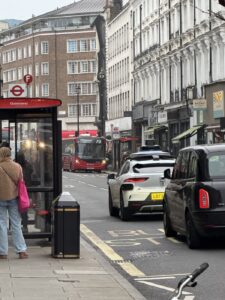The Mayor of London, Sadiq Khan, has issued a high air pollution alert this week.
This follows the moderate air pollution London has been experiencing since Saturday 21st January with the continuing cold, still, and foggy conditions in London resulting in poor dispersion of vehicle emissions.
Schools and boroughs will be notified of the alert and messages will be displayed across the TfL network.
The Mayor of London, Sadiq Khan, said: “We know how dangerous toxic air is for Londoners – that’s why I’m doing everything in my power to tackle it. On Tuesday, alongside the extreme cold temperatures we’ve been experiencing, we are also expecting high levels of air pollution.
“Following the latest forecast from Imperial College London, I am issuing a ‘high’ air pollution alert. This shows once again why it’s so vital that we expand the Ultra Low Emission Zone London-wide to reduce toxic air pollution in our city.
“We all need to be careful over the next few days. I’m urging Londoners to look after each other by choosing to walk, cycle or take public transport where possible, avoiding unnecessary car journeys, stopping engine idling and not burning garden waste, all of which contributes to high levels of pollution. This is particularly important in order to protect those who are more vulnerable to high pollution.”
The Mayor’s air pollution forecasts are issued by Imperial College London. These are combined forecasts – meaning they are based on a number of public forecasts: airTEXT, Defra (Met Office) and Imperial.
As with weather forecasts, there are occasions when the forecast providers will not agree. The Mayor’s forecast will represent the most likely picture drawn from the three forecasts, expected across the whole of London. So, it’s possible that the Mayor’s forecast (which is issued by Imperial College London) may not be the same as the Defra’s forecast since this is only one of the three inputs.
All forecasts considered in compiling the Mayor’s combined forecast provide information based on the UK Daily Air Quality Index (DAQI). Particulate matter forecasts relate to a full day (midnight to midnight).
London has the world’s largest air quality monitoring network, which provides free live and archived air quality data to anyone who wants it as well as supporting pollution forecasting and London’s air quality alert service.






















